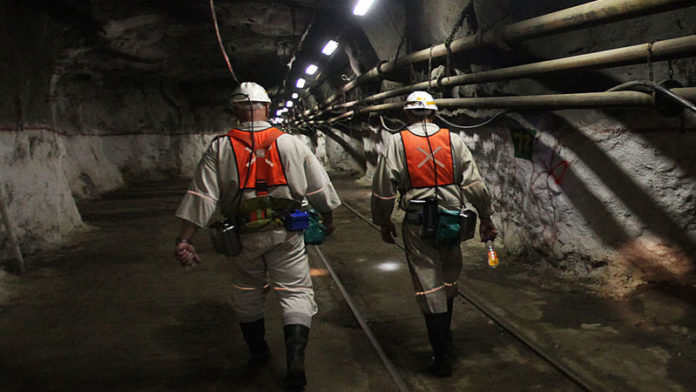
SOUTH Africa’s mining industry was confident of handling a surge in Covid-19 infections as the sector resumed full activities following the seasonal holidays, said BusinessLive.
“The industry’s focus is back to prevention of infection, which is social distancing, masks and sanitation, as well as robust screening and testing protocols,” Charmane Russell, spokeswoman for the Minerals Council South Africa told the publication.
“What we have this time around is the wonderful benefit of hindsight … This time it’s not so much about the learning how to cope with something we’ve never experienced before, but the doing,” Russell said.
BusinessLive quoted Gold Fields vice-president of Gold Fields South African operations, Martin Preece, as saying there was some concern regarding the higher incidence of Covid-19 infections identified among returning employees.
But Preece added the company would demonstrate it was safer to be at work than at home, as it had done during the peak of Covid-19 infections last year. A variant of Covid-19 has played a role in the increase in daily infections nationally above 20,000.
In the last week of December and into the first week of January, 27% of Gold Fields’ employees tested positive for the coronavirus, but this had fallen back to 22% in the most recent batch of tests, Preece said.
“Depending on how this second wave plays out, that number could get worse,” said Preece. “Last year, we said it was safer to come to work than travelling or going to a shopping mall. We will get there again,” Preece said.
About 90% of 4,093 employees at Gold Fields South Deep mine, west of Johannesburg, had returned to work, said BusinessLive.
James Wellsted, spokesman for Sibanye-Stillwater, said protocols were in place to ensure the smooth restart of operations at the facilities of the platinum group metal and gold producer.
“It’s traditionally a slow start-up period in the new year,” said Wellsted.
“The only difference now really is that Covid has added the element of screening and testing, but we’ve learnt from 2020 which means we’ve improved the way we bring people back and conduct the screening process. It’s a lot smoother now,” he said.











